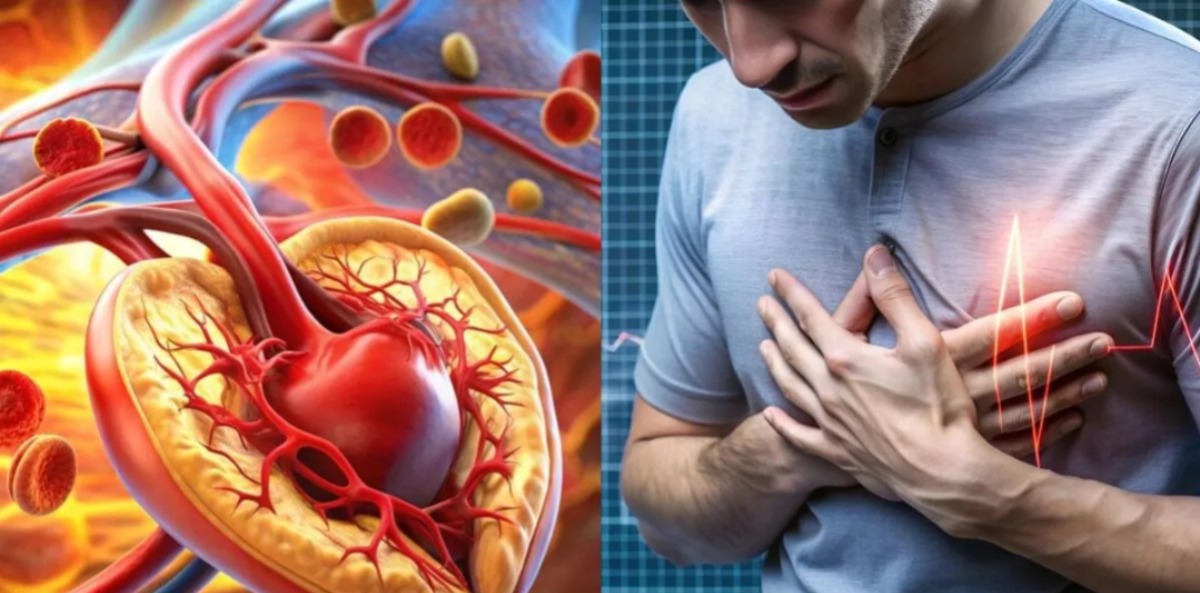
Coronary Artery Disease is a disease related to arteries in which the blood vessels shrink and blood flow also slows down. Poor diet and lack of physical activity are the real root of this disease. Let us tell you, if it is not identified in time, the risk of atherosclerosis also increases. Cholesterol and calcium deposits in the arteries form a kind of sticky layer, which is called plaque. This plaque can block the arteries, as happens when dirt gets accumulated in a pipe. Due to reduced blood flow, there is a risk of heart attack every moment. In such a situation, with the help of lipid profile, the level of cholesterol and other fats in the blood can be measured, with the help of this test, doctors are able to find out how high is the risk of heart disease or heart attack and what necessary precautions you should take. Let us know with the help of a doctor how this disease can be understood with the help of lipid profile.

According to the Global Burden of Disease Report published in the Journal of the American College of Cardiology in 2023, coronary artery disease (CAD) is silently spreading like an epidemic in India, causing 28.1 percent of all deaths in the country. The situation in India is even more serious because people here suffer a heart attack a decade earlier than people in Western countries. Due to these worrying statistics, it is very important to understand CAD and control its symptoms. Lipid profile tests also play an important role in gathering important information about cardiovascular health.
What is a lipid profile?
Lipid profile is also known as lipid panel. It tests the different types of cholesterol and triglycerides present in the blood.
This test includes-
- Total Cholesterol
- low-density lipoprotein (LDL) cholesterol
- high-density lipoprotein (HDL) cholesterol
Triglyceride
Each of these points has a specific role in cardiovascular health and together they determine the risk of CAD.
Understanding Lipid Profile Report
Total Cholesterol
Total cholesterol shows how much cholesterol is present in the blood. Although some cholesterol is necessary for the body to function properly, if the amount of cholesterol increases too much, it starts accumulating inside the blood vessels. The proper level of cholesterol is less than 200 mg/dL.
LDL cholesterol
This is also called 'bad' cholesterol . LDL sticks to the walls of blood vessels and accumulates as plaque, causing the blood vessels to become narrow and stiff. This leads to atherosclerosis, which is the main cause of CAD. LDL levels in the body should remain below 100 mg/dL; the lower the LDL, the lower the risk of heart disease.
HDL cholesterol
HDL cholesterol is called 'good' cholesterol because it prevents heart disease. It helps the liver remove excess cholesterol from the blood and remove it from the body. The higher the level of HDL, the lower the risk of heart disease. A balanced level of HDL is 60 mg/dL or more.
triglyceride
Triglycerides are a type of fat that can increase the risk of narrowing of blood vessels. High triglycerides, as well as high LDL and low HDL, greatly increase the risk of CAD. The normal level of triglycerides is less than 150 mg/dL.
Lipid profile results
Individual lipid levels may not matter as much as they do in overall health. Lipid profiles, combined with factors such as age, sex, family history, smoking habits, blood pressure, and diabetes, can determine the risk of CAD.
The ratio of HDL cholesterol to total cholesterol provides very important information. This ratio should not be more than 5:1, the lower the ratio, the lower the risk of CAD. The risk of CAD is assessed by looking at the ratio of total cholesterol to HDL cholesterol. A ratio of 5:1 or less is good, indicating low risk.
Measures based on lipid profile
If your lipid profile indicates an increased risk of coronary artery disease, here are some tips that can be very helpful.
Lifestyle improvements
A heart-healthy diet, regular exercise, weight control, and smoking cessation improve lipid profile, thereby reducing the risk of CAD.
Medicines
To keep cholesterol under control, doctors can give special medicines like statins.
Regular health checkups
Regular monitoring of lipid profile is helpful in monitoring the progress of treatment.
Knowing your lipid profile is important to understand your risk of coronary artery disease. With the increasing incidence of CAD in India and the tendency to develop CAD at a younger age, it has become even more important to check your lipid profile regularly to help control cardiovascular risk. So get your lipid profile checked today and live a healthy life by preventing heart disease in the future.
--Advertisement--

 Share
Share



